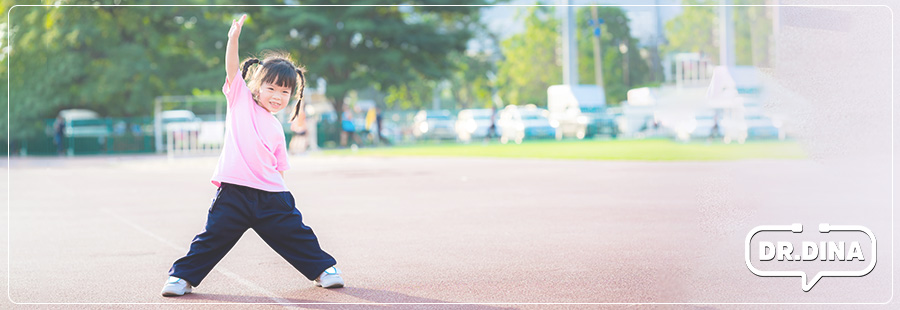My ten Stress Reducing Strategies for the Pandemic!
Parents are dealing with so many competing demands. Children may be learning from home, and parents are often working full time from home as well.
Activities are canceled, and we are entertaining and educating our kids at the same time. As a result, many of us parents are exhausted, overwhelmed, and stressed.
And there isn’t a clear end in sight. So we want to reduce stress and anxiety during this Pandemic as quickly as we can.
Research over decades shows us that childhood adversity can have long-lasting effects on kids’ health, mental wellness, and development.
Research has shown that children who have faced neglect, family conflict, and physical abuse more commonly struggle to make meaningful friendships; some have academic difficulties and are at greater risk for physical and mental health problems.
Luckily, we know that most kids and families are resilient and can thrive during a challenging time. Though times are difficult, kids and adults learn that adversity can be overcome, and we are all learning how to cope during significant changes. And this learning will be helpful for years to come.
Many parents worry about the possible long-term effects of the disruption in our lives.
Don’t despair!
Here are ten ways to reduce stress and anxiety during the Pandemic while fostering our kids’ resilience:
1. Connect with your child
Spend some time just listening and playing with your child, without distractions. Ensure your child know they are loved unconditionally.
Plan to spend some quality time with your child, merely spending time together like taking a walk, baking, or reading together. Connecting with your kids will make them feel secure, and loved, and protected.
2. Support your child’s friendships
Consider how your child may be able to safely play with others outdoors, communicate via technology, or play a virtual with friends. For example, some families choose to create bubbles where a close friend or family is distant from others and is only in contact with your family.
Keeping in touch with friends and loved ones allows children to reduce stress and somewhat forget about current stresses.
3. Help others
Talk about how others are also struggling. Then, please encourage them to donate toys they’ve outgrown or save money for a particular charity.
Discuss why you are helping others. Kids will learn valuable lessons and understand your values.
This allows your kids to learn about other kids’ needs and fosters the development of empathy.
4. Participate in groups, virtually
Many activities and social groups are still participating during the Pandemic virtually.
Special interest groups such as :
-martial arts,
-music,
-and art
It can allow your child to still feel like a group member and help promote identity development.
Belonging to a group can help children feel a sense of belonging and promote academic and social success.
5. Stay in touch with loved ones.
Children benefit from relationships with other adults in their lives, such as grandparents and teachers. These grown-ups can be another source of support and someone to talk to about problems or successes.
This can help if parents are working and kids need a little extra help. In addition, virtual platforms are plentiful to enable kids to connect with loved ones.
6. Keep up with hobbies.
No one likes to be bored. However, having something fun to do and look forward to can be gratifying and enable your child to feel a sense of mastery.
Learning a hobby can foster independence and build skills while teaching discipline and promoting self-esteem.
Kids can continue to work on art, music, writing, science projects, chess, and many other pursuits, even when social distancing.
7. Move your bodies
When you are active, particularly outdoors, it makes you feel better. This is true for kids and adults. Therefore, child development needs to make outdoor busy time part of your family’s daily routine.
Going for a walk outside as a family, or a bike ride or a swim can improve the whole family’s mental and physical health.
8. Routine is King
Kids and adults thrive on routine. Kids feel safe and comforted when their lives are predictable and routine.
We all like to know what to expect in the day. Routine makes us feel in control and less overwhelmed.
Try to maintain a routine in sleep and feeding times. Make a routine time to exercise and get outside. The more kids know what to predict, the calmer and happier they will be.
The more structure to your day, the better. That way, you can veer back to the routine when things are feeling out of control.
9. Be realistic
Children’s schooling involvement is varied. Some kids have been in person since the beginning, and some haven’t for a year.
Virtual schooling requires parents to be more involved than before, as we now have to check in during the day, help when they are struggling, and even monitor assignments. Parents are not often their child’s teacher; it is a steep learning curve.
While schoolwork is needed, not all learning takes place in class. You can teach kids tons at home through baking (measuring, math), shopping (math again!), and games.
These all build thinking and memory, and concentration. Read with your child every day. Depending on the book’s level, you can read to your child or take turns reading pages.
10. Create a healthy and safe home
Of course, as much as we can, we should aim for a life of health.
Life may seem overwhelming right now and chaotic, but sticking to:
- healthful meals,
- daily exercise,
- and organized family life can lead to stress relief,
- better sleep,
- and a happier body and mind.
We love to involve our kids in cleaning, organizing, meal prep, laundry, and other tasks in our home. There are plenty of things to do, and why not have their help?
They will grow up to be responsible adults, and they are learning essential life skills.
They will learn a lot in the process and also feel like they are part of the team. In addition, cleaning and tidying, and organizing can create a feeling of calm.
Kids are more likely to eat what they help prepare, which is a win-win for overall family health.
Parenting During the Pandemic
Many parents follow these suggestions regularly, but it can be challenging to maintain with increased demands and the Pandemic’s burden.
Now is an excellent time to choose some of these strategies and make the whole family feel their best. But, of course, every family is different, and what works for our family may not work for you.
Depending on your kids’ age and developmental stage, you can try any of these techniques to make it through these challenging times, evening thriving through the Pandemic and getting the desired behaviors out of them.
FAQs – Frequently Asked Questions
What do you do to reinforce good behavior in your child?
-Clapping,
-Cheering,
-Giving praise,
-Giving high-fives are all ways to show support,
-Offer a hug or pat on the back for children when they have done something good-natured;
-Give them two thumbs up!
Is a child’s behavior a reflection of the parenting style?
Children share genetic similarities with their parents but also what they see on a day-to-day basis. Therefore, it is suitable as a parent to know what your children watch, who they listen to, and how their manors are.
If a child is acting out by negative behavior and having issues, a parent might want to check what they watch, who they are listening too and themself to see where these actions are coming from and find a solution.
How do I improve parent-child relationships?
-Why not tell your children you love them more often
-Share a bedtime ritual with them.
-Encourage independence
-Give help when they need it
-Spend time as an entire family,
-Eat together at least once per day in addition to snack times throughout each week – this will make memories that last forever!
-Seek out opportunities for mentoring or coaching because these are great ways parents have helped their kids develop into successful adults.
Does positive parenting promote positive behaviors?
Positive Parenting styles are an evidence-backed approach to parenting that has been proven successful in boosting kids’ confidence and building a foundation for better behavior at home, school.
What is Oppositional Defiant Disorder?
A child who does not respect or listen to their parents, teachers, and other authority figures may have a disorder.
These children often demonstrate defiance in verbal (refusing to follow instructions) and physical forms of aggression such as hitting others with objects.
How do you promote positive reinforcement with a child with an oppositional defiant disorder?
By setting up expectations ahead of time, you can allow your child to earn privileges following those guidelines.
#YouGotThis
Dina is a wife, mother of 4, and adrenaline junky. She loves to share children’s health information from her professional and personal experience. More About Dr Dina.















